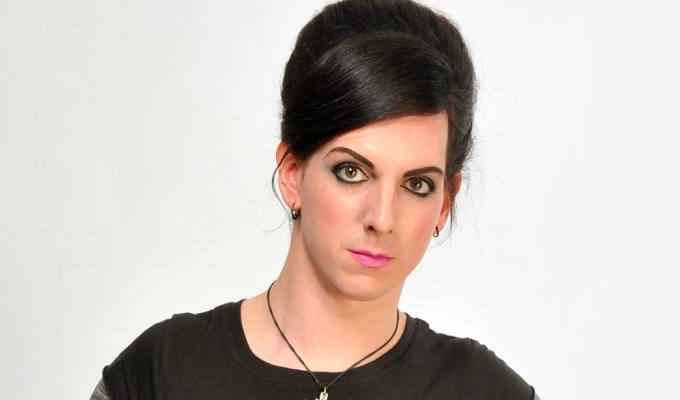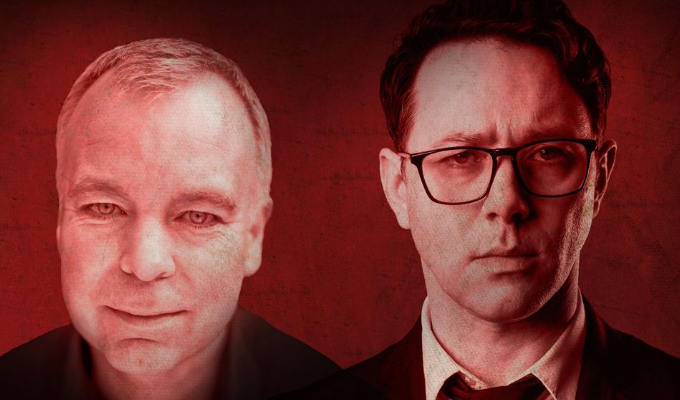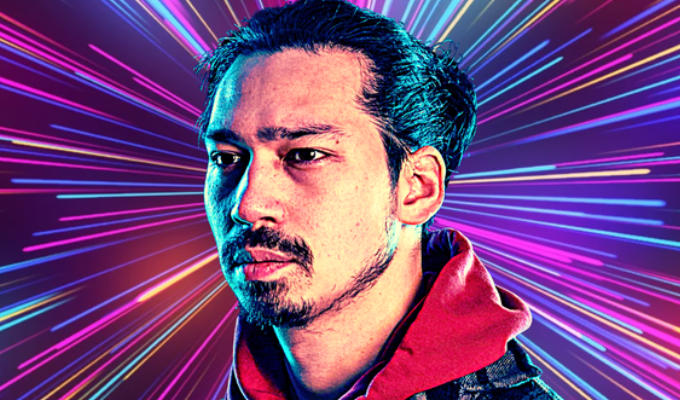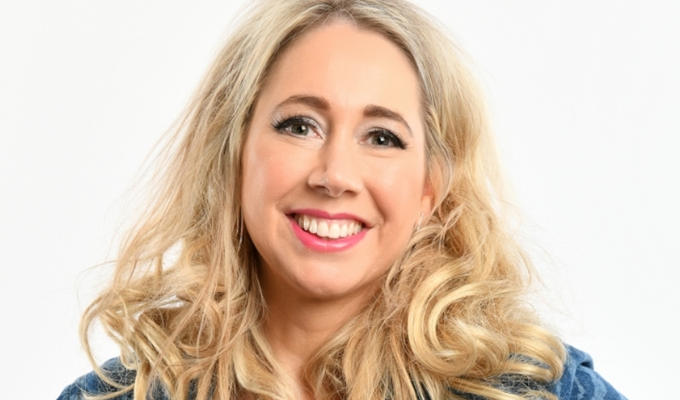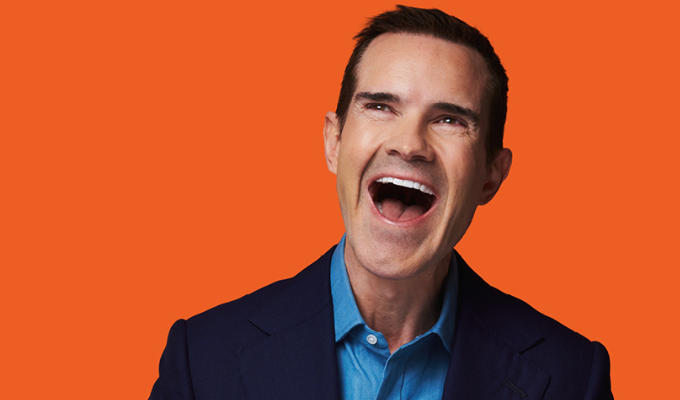
Getting a talent visa is no joke
Comedian Laura Quinn Goh on the UK's appeal for international acts... and the hoops she had to jump through to work here
My friends and I are all job-stealing immigrants.
That's a lie. If we wanted to steal jobs, we would actually want to make money, not perform comedy.
I know of eight people here in the UK who received a Global Talent Visa for stand-up comedy in the past year, including myself. Which sounds like a lot. At this point, maybe we should hold stand-up comedy workshops in Calais. But I swear we did work hard for it, and it's not as easy as you think.
The Global Talent Visa enables an international talent to live and work in the UK for three years if they are established leaders in their field or five years if they are emerging leaders in their field with no restrictions but also no access to public funds.
One of the hardest visas to obtain, it comes with a list of requirements. For an applicant going down the arts and culture route, they must submit up to ten pieces of evidence to Arts Council England demonstrating that they possess at least two out of the three categories: (a) professional appearances, (b) an award nomination, or (c) two media reviews. They must also submit an artistic CV and three recommendation letters from established industry entities or individuals (think the founding director of a comedy club, not the bartender you made out with after a pub gig). This work does not take place over the course of hours or even weeks. Attaining this evidence takes years of performing, competing, and relationship-building.
You can apply with instructions from the guide available on the Arts Council England website or hire an immigration lawyer to read the same instructions out loud. Either way, it is an expensive exercise with an NHS surcharge of over £1,000 a year and application fees of nearly £700. In total, it's nearly £6,000 or £4,000 (depending on the length of the visa).
The process can be extremely harrowing for some comedians who came here on other visas originally and have already made a life here. After two years on a graduate visa, I was let go by a British employer who had a pattern of promising visa sponsorship to foreign hires and then letting them go. With time ticking on my current visa, I signed with a comedy talent management agency, had connections sign my letters, gathered my evidence, and submitted the application within five days.
Scottish-based Canadian comedian Kate Hammer explained: ‘Your whole life could be turned upside down if you're not approved, which for me meant I was either going to receive an email saying I got it, or an email saying that I would need to leave the country in 14 days. It affected my entire life. I was seeing someone at the time I was applying and I couldn't handle the stress of the process, so we broke up. It's a lot more intensive than people understand!" Especially when the approval takes up to eight weeks.
For comedians who were considerably well-established in their home regions, relocating to the UK can sometimes mean starting from the bottom. A big fish in a small pond won’t stay a big fish in a big pond. Despite their overseas fame, they still have to work as hard as everyone else starting out.
We haven’t even taken into account the cultural and content barriers. When I started stand-up comedy in the UK, I put my foot in it when I criticised the NHS. I can’t answer most British pub quiz questions. I can’t tell you why 8 Out Of 10 Cats does not involve any cats. As international acts, we’ll never be able to understand some parts of the British psyche.
So with such prohibitively high costs and the uncertainty of success as an international comedian in the UK, what makes so many foreign acts want to go down this route?
I have been in the UK for three years on a student and then graduate visa. My then-partner had just managed to escape the death penalty in our home country Singapore and I thought I wanted to start a new life with him here.
With legal immigration laws growing stricter, I knew it would be harder to get a sponsored work visa, so I sought to use the talent visa as a back-up. Driven by love and fear, I performed until I was semi-professional. A big part of why I wanted to stay was because I also knew there was limited space for my comedy in my home country.
My debut hour You, Me, And Your Correctional Officer was about my relationship with a man facing death row for a crime he did not commit. I would not have been able to perform this piece back home due to Singapore's pro-death penalty stance and heavy censorship laws.
My friend and fellow Singaporean comedian based in London, Sam See, echoed this sentiment. He had been an established and openly gay act back home. He already had a Wikipedia page by the time I got into comedy On his decision to move, he said: ‘In Asia, we’ve had to deal with more and more encroaching governments and officials with attempts to both censor and silence performers across the region.’ This, coupled with the stagnant pay in Asia’s comedy scene and lowered post-pandemic demand for comedy, made the move inevitable.
Why the UK? The UK has one of the poorest performing economies in the Global North. Young Brits are fleeing in droves. If you speak to any British person, they would tell you everything has gone downhill since the financial crisis. In 2008! 17 years ago! As someone from overseas, I think you really had enough time to recover and you should take to the streets like the French.
But for Anglophone comedy, there are only a few countries you can go to for a comedy career - that would be the UK, the United States, Australia, and Canada. The United States just re-elected Trump, DEI initiatives are being rolled back, and the healthcare system is broken. Not moving to the US would be dodging a bullet - literally and figuratively. While Australia and Canada have a comedy scene, the UK does have a larger population and a long history and love of stand-up comedy.
For South Korean comedian, Sang Don Park, the draw of the UK (or rather London, where he is based) was its diversity. In contrast to the small comedy scene of the culturally homogenous South Korea, the British comedy industry showcases a range of different styles, from dry to deadpan, he explained. Residing in the UK offers him the opportunity to expand his knowledge in comedy and also his audience base.
Indeed, the UK offers opportunities you wouldn’t find elsewhere. Countless comedy clubs, the comedy nights in far-flung town pubs, numerous festivals for your shows, corporate gigs when companies need to spend the remainder of their annual budget, and some television opportunities if you’re lucky.
However, being surrounded by these opportunities doesn’t mean you will get them. As many comedians can attest, it can be extremely hard to make a living out of stand-up comedy alone. It will take time to be able to do comedy professionally. Getting the visa was the easy part.
Kate Hammer summarises the struggle: ‘It was such a relief to get the visa and know I can grow my career here, but my residency is so dependent on constantly working, taking gigs wherever and whenever, because you never know when it'll be a lighter month. It still feels as though I need to prove myself every day, and that I’ll never feel safe being here until I have (indefinite) leave to remain.’
Like many comedians here, international ones are also multi-hyphenate creatives or hold full-time jobs to keep money coming in. That’s simply what you have to do.
On if he would recommend that international acts take up the talent visa route in the UK, Sam See warned: ‘Comedy is a much harder game than before, with much more supply and the demand not as strong as it used to be, stagnating fees, and battling influencers keen to approach the live market for the cash cow it is.
‘This isn’t a game, it’s a job, and acts that have a mindset to work as if this is their livelihood should take this path.’
Whether the price was worth it? Google our names in five years’ time.
- Please go to the Home Office's website for the most updated and comprehensive information on the talent visa. If you’re only using info from a comedy website to apply for a talent visa, you’re probably not bright enough to get one.
- Laura Quinn Goh will perform You, Me, And Your Correctional Officer on March 14 at Tennent's Bar as part of the Glasgow International Comedy Festival. She doesn’t have enough money to do Edinburgh Fringe or tour her show because her visa was so expensive. Follow her on Instagram @lauraquinngoh
Published: 6 Mar 2025

